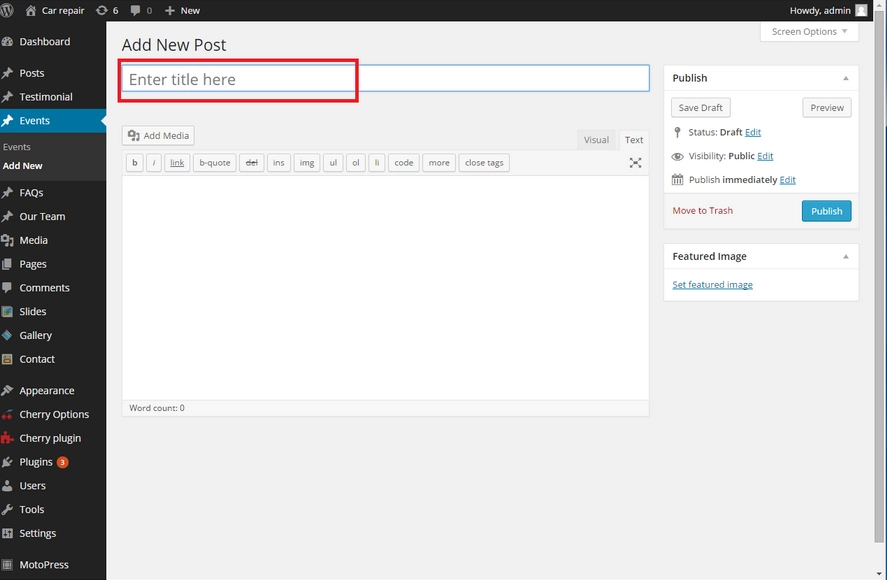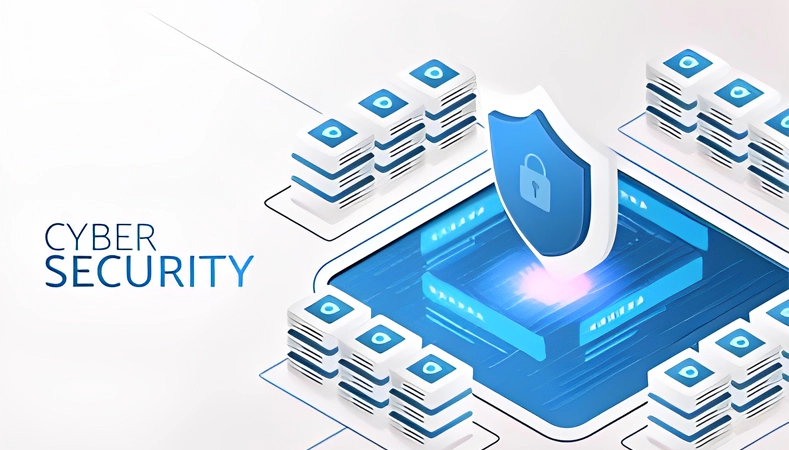Table of Contents
In the fast-evolving world of cybersecurity, individuals often find excitement in various aspects of the field. Cybersecurity as a service is a dynamic domain, appealing to those drawn to the technical challenges of safeguarding digital assets, the ethical responsibility of protecting user privacy, and the investigative thrill of solving cybercrimes. Identifying what excites you the most will help shape your cybersecurity journey and guide your focus as you delve into this multifaceted realm.
What aspects of cybersecurity excite you most (technical, ethical, investigative)?
For those intrigued by the technical facets of cybersecurity, mastering the basics is crucial. The first step is to build a strong foundation in IT and computer science skills. Aspiring cybersecurity professionals often find excitement in ethical considerations and understanding the responsibility of securing information and systems. Investigative minds thrive on analyzing threats, identifying vulnerabilities, and solving complex puzzles that characterize cybersecurity incidents.
Regardless of your primary interest, cybersecurity classes near me provide valuable opportunities to gain hands-on experience and learn from experienced instructors. These classes often cover foundational concepts, such as cryptography, network security, and ethical hacking, setting the stage for a successful cybersecurity journey.
Are you prepared for the constant learning and adaptation required?
Embracing continuous learning is non-negotiable in the cybersecurity landscape. The rapid evolution of threats and technologies demands a commitment to staying current. How to get started in cybersecurity involves a mindset of perpetual adaptation. Online platforms offer many free resources and courses, from beginner to advanced. Engaging with these materials ensures you stay well-informed about the latest trends, vulnerabilities, and best practices.
Maintaining a sense of curiosity and a thirst for knowledge will be your greatest assets in this ever-changing field. To solidify your understanding, consider joining forums and communities where professionals share insights and discuss emerging trends. Staying adaptable is a skill and a mindset that will serve you well throughout your cybersecurity career.
What basic IT/computer science skills should I master first?
Mastering fundamental IT and computer science skills forms the bedrock of a successful cybersecurity career. Proficiency in programming languages like Python, understanding operating systems, and grasping networking concepts are essential. Familiarity with databases, cloud computing, and system administration further enhances your capabilities.
In addition to technical skills, soft skills like communication and problem-solving are equally vital. The ability to convey complex technical information clearly and concisely is invaluable, especially when collaborating with non-technical stakeholders. Balancing technical expertise with effective communication will distinguish you in the competitive field of cybersecurity.
What free resources and courses can help me gain foundational knowledge?
Embarking on a career in cybersecurity can sometimes require a hefty investment. Numerous free resources and courses are available to help you build a solid foundation. Platforms like Coursera, edX, and Khan Academy offer cybersecurity courses ranging from beginner to advanced. Cybersecurity associate’s degree programs often incorporate online resources, making education accessible to a broader audience.
Interactive platforms like Cybrary and OverTheWire provide hands-on labs and capture-the-flag challenges, allowing you to apply theoretical knowledge in practical scenarios. These resources not only build your technical skills but also instill the problem-solving mindset essential for success in cybersecurity.
Which cybersecurity domain aligns with my interests and skills (threat analysis, network security, penetration testing)?
Understanding your interests and skills is pivotal in choosing a cybersecurity domain that aligns with your career goals. Cybersecurity associate degree programs typically introduce various domains, allowing you to explore and identify your strengths. Threat analysts focus on identifying and mitigating potential risks, network security specialists safeguard data during transmission, and penetration testers simulate cyberattacks to fortify systems.
Certifications such as Certified Information Systems Security Professional (CISSP) for broad knowledge or Certified Ethical Hacker (CEH) for penetration testing provide clear paths within these domains. Tailoring your skills to a specific cybersecurity niche enhances your expertise and marketability in the industry.
What are the key skills and certifications needed for each path?
Each cybersecurity path demands a unique set of skills and certifications. Threat analysts should excel in risk assessment and incident response, while network security specialists require expertise in firewalls, intrusion detection systems, and encryption protocols. Conversely, penetration testers need proficiency in ethical hacking tools and techniques.
Certifications validate your skills and boost your credibility. Getting started in cybersecurity involves researching and obtaining certifications relevant to your chosen path. Certifications like Certified Information Systems Security Professional (CISSP) or Certified Incident Handler (GCIH) are valuable for threat analysis. Network security specialists benefit from certifications such as Certified Information Systems Auditor (CISA) or Certified Information Security Manager (CISM). Certified Ethical Hackers (CEH) and Offensive Security Certified Professionals (OSCP) are well-regarded penetration testers.
Where can I find practical experience through labs, capture-the-flag challenges, and personal projects?
Practical experience is a cornerstone of a successful cybersecurity career. Labs and capture-the-flag challenges offered by platforms like Hack The Box, TryHackMe, and Root Me provide simulated environments for hands-on learning. Engaging in personal projects, such as setting up a home lab or contributing to open-source security projects, demonstrates initiative and practical skills.
Participating in capture-the-flag competitions, both online and in-person, exposes you to real-world scenarios. Networking events and conferences often host CTF competitions, offering opportunities to showcase your abilities and connect with industry professionals. Gaining practical experience reinforces your knowledge and enhances your problem-solving and critical-thinking skills.
How can I contribute to open-source security projects for hands-on learning?
Contributing to open-source security projects is a valuable way to gain hands-on experience and make meaningful contributions to the cybersecurity community. Explore repositories on platforms like GitHub, where numerous projects seek assistance. Engage with the community, ask questions, and contribute to discussions to enhance your understanding of real-world challenges.
Active involvement in open-source projects provides practical experience and establishes your presence in the cybersecurity community. It showcases your commitment to learning and contributing to the collective knowledge base. Cybersecurity classes near me also offer opportunities to collaborate on local open-source initiatives, fostering connections within your area.

How can I connect with cybersecurity communities and online forums for mentorship and learning?
Building a network within the cybersecurity community is essential for mentorship, knowledge sharing, and professional growth. Online forums like Reddit’s r/netsec and platforms like Stack Exchange Cybersecurity provide spaces to ask questions, seek advice, and engage with experienced professionals. Joining LinkedIn groups and following influential cybersecurity personalities on social media can also provide valuable insights.
Local meetups, organized by cybersecurity communities or industry associations, offer opportunities for face-to-face networking. Cybersecurity associate’s degree programs often facilitate connections with local professionals, creating a bridge between academic learning and practical insights. Engaging with the community broadens your knowledge and opens doors to potential mentors and collaborators.
What networking events and conferences should I consider attending?
Attending cybersecurity conferences and networking events is a strategic move to stay updated on industry trends, forge connections, and explore potential career opportunities. DEF CON, Black Hat, and RSA Conference attract professionals worldwide. Many conferences host job fairs, providing a platform to interact with recruiters and potential employers.
Local events, such as cybersecurity meetups or workshops, offer a more intimate setting for networking. Check with cybersecurity classes near me for information on local events. Preparing a concise elevator pitch and having a well-crafted LinkedIn profile can maximize the impact of networking events, leaving a lasting impression on potential contacts.
How can I tailor my resume and cover letter to highlight relevant skills and experience?
Crafting a compelling resume and cover letter is crucial in the competitive field of cybersecurity. Tailor your resume to showcase relevant skills, certifications, and experience. Highlight hands-on projects, specific achievements, and any contributions to open-source security projects. Use action verbs to convey the impact of your work and quantify your accomplishments whenever possible.
In your cover letter, express your passion for cybersecurity and align your skills with the job’s specific requirements. Mention any relevant certifications, emphasize your commitment to ongoing learning, and convey your understanding of ethical considerations in the field. Customizing your application materials for each position demonstrates your genuine interest and suitability.
What interview questions should I expect, and how can I prepare effectively?
Cybersecurity interviews often include a mix of technical and behavioral questions. Be prepared to discuss your experience with specific tools, problem-solving approaches, and understanding of security concepts. Showcase your ability to communicate complex technical information to non-technical stakeholders.
Practice answering common questions about incident response, threat analysis, and your experience with penetration testing tools. Behavioral questions may focus on how you handle pressure, work in a team, and approach ethical dilemmas. Utilize online resources, mock interviews, and feedback from mentors or peers to refine your interview skills.
What are the best resources for staying updated on emerging threats and vulnerabilities?
Staying informed about emerging threats and vulnerabilities is fundamental to a cybersecurity professional’s role. To receive timely updates, subscribe to reputable cybersecurity blogs, such as Krebs on Security, The Hacker News, and Schneier on Security. Follow industry reports from Verizon, Symantec, and CrowdStrike for insights into the current threat landscape.
Engage with online communities, participate in webinars, and attend conferences to stay abreast of the latest developments. Utilize threat intelligence feeds and platforms like the National Vulnerability Database (NVD) for comprehensive information. Continually staying informed enhances your ability to anticipate and mitigate evolving cybersecurity challenges.
How can I maintain and enhance my skills through ongoing training and certifications?
The dynamic nature of cybersecurity demands continuous learning and skill enhancement. Regularly update your certifications to reflect the latest industry standards. Platforms like Cybrary, Udemy, and Pluralsight offer a variety of courses to deepen your expertise in specific areas.
Engage in professional development opportunities like webinars, workshops, and hands-on training. Consider pursuing advanced certifications like Certified Information Systems Security Professional (CISSP), Offensive Security Certified Expert (OSCE), or Certified Information Security Manager (CISM) to demonstrate your commitment to professional growth. Proactive skill development keeps you relevant and positions you as a valuable asset to employers.
What ethical considerations should I prioritize in my cybersecurity career?
Ethical considerations are paramount in the field of cybersecurity. Uphold principles of integrity, transparency, and confidentiality. Respect user privacy and adhere to legal and ethical standards when conducting security assessments. Communicate responsibly about vulnerabilities, ensuring that disclosure follows ethical guidelines and does not harm users.
Seek out organizations with a strong ethical stance and prioritize the responsible use of technology. Participate in initiatives that promote cybersecurity awareness and education. Contribute to a culture of ethical conduct within the industry, fostering an environment where professionals collectively prioritize the greater good.
How can I contribute to the responsible and ethical use of technology?
Contributing to the responsible and ethical use of technology involves active participation in initiatives that promote security awareness, education, and compliance. Stay informed about industry best practices and legal regulations related to cybersecurity. Volunteer your expertise to organizations that focus on cybersecurity education and awareness.
Engage with local schools and communities to educate individuals about online safety and the responsible use of technology. Consider obtaining certifications in ethical hacking and security awareness training to enhance your ability to contribute to a safer digital environment. By actively promoting ethical practices, you become an advocate for responsible technology use.
How can I identify opportunities for specialization within my chosen cybersecurity domain?
As you progress in your cybersecurity career, identifying opportunities for specialization becomes crucial. Evaluate your strengths, interests, and the current demands of the industry. Consider obtaining specialized certifications such as Certified Information Systems Security Professional (CISSP) concentrations, which allow you to focus on specific areas like architecture, engineering, or management.
Network with professionals in your chosen niche, attend specialized conferences, and stay updated on emerging trends. Engaging with online communities dedicated to your specialization provides insights and mentorship. Specializing enhances your expertise, making you a sought-after professional in your chosen field.
What advanced certifications and career paths could I pursue for deeper expertise?
Advanced certifications and specialized career paths open doors to deeper expertise and leadership roles in cybersecurity. Pursue certifications like Certified Information Systems Security Professional (CISSP), Certified Information Security Manager (CISM), or Offensive Security Certified Expert (OSCE) to demonstrate advanced knowledge and skills.
Explore career paths such as cybersecurity consultant, security architect, or Chief Information Security Officer (CISO). These roles often require a combination of technical proficiency, strategic thinking, and leadership capabilities. Tailor your professional development plan to align with your career goals and continuously seek opportunities for advancement.
What are the challenges and potential roadblocks in a cybersecurity career?
While a cybersecurity career offers immense opportunities, challenges and roadblocks are inevitable. Continuous learning and adaptation can be demanding, requiring a proactive approach to skill development. Balancing the technical and ethical aspects of the field requires constant self-reflection and commitment to ethical conduct.
Navigating a competitive landscape necessitates distinguishing yourself through certifications, practical experience, and networking. The evolving nature of cyber threats means that staying informed is not just a challenge but a necessity. Resilience, adaptability, and a passion for the field are essential qualities that will help you overcome challenges and thrive in your cybersecurity career.
How can I build resilience, stay motivated, and navigate the competitive landscape?
Building resilience, staying motivated, and navigating the competitive landscape of cybersecurity requires a combination of mindset and practical strategies. Cultivate a growth mindset that sees challenges as opportunities for learning and improvement. Set realistic goals, celebrate small victories, and continually reassess and adjust your career path.
Join online communities, attend conferences, and engage with mentors to stay motivated and connected. Embrace a continuous learning mindset, seeking out new challenges and technologies. Developing a personal brand through a strong online presence, a well-crafted LinkedIn profile and a diverse portfolio of projects enhances your visibility in the competitive cybersecurity landscape.
In conclusion, cybersecurity is dynamic, challenging, and rewarding. You can build a successful and fulfilling career by staying curious, actively participating in the community, and continuously developing your skills. How to get started in cybersecurity is not just a question; it’s a journey that Jointhegrave.com is ready to support. Join us today to connect with a vibrant community, access valuable resources, and embark on your cybersecurity adventure.












Leave a Reply